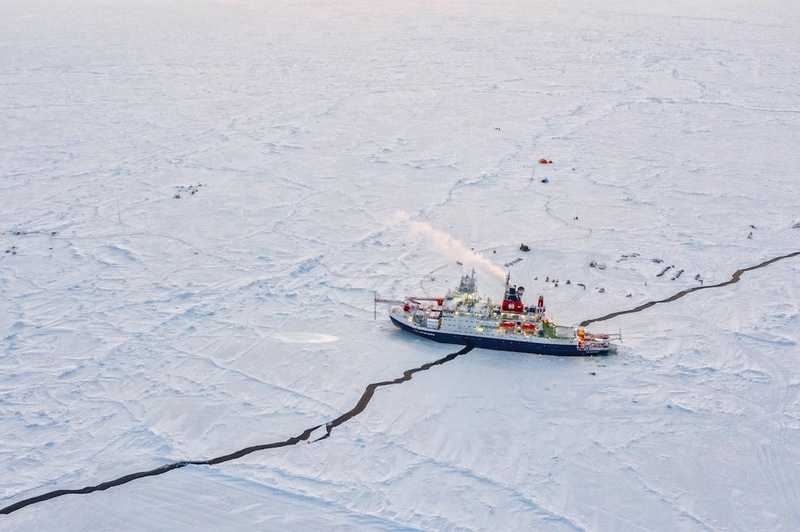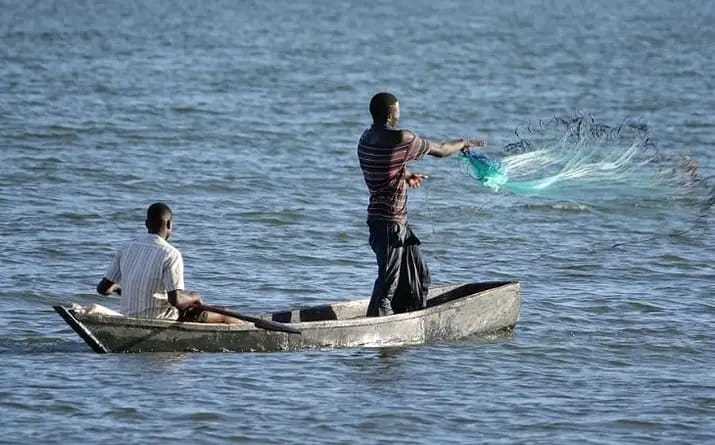
The sea covers 71% of the world’s surface and 40% of the world’s population live and work in coastal communities. When the NIEO was established in 1974, it was in the midst of protracted negotiations leading to the United Nations’ Convention on the Law of the Sea (UNCLOS) in 1982. The G77 were very active in those negotiations.
What has happened since then can only be described as among the most disastrous developments for developing countries and the world. Today, it should be regarded as a top priority to develop and implement a new NIEO that does nothing less than dismantle the edifice of rentier capitalism and neo-mercantilist neo-colonialism that has been constructed over the past fifty years, and nowhere does this apply more than in the sea.
Drawing on a recently published book, this short paper considers some of the main developments since UNCLOS and how they have trashed the hopes of any NIEO. It concludes by proposing the basis of a more transformative strategy for a NIEO suited to the 21st century.
The Establishment of UNCLOS
The process began with an electrifying speech by the Maltese diplomat Arvid Pardo in the United Nations in 1967, in which he made the case for treating the sea as a commons, as ‘the common heritage of mankind’. In this, he was echoing a principle of common law that had been accepted since the Justinian Codex of AD529-534, in which the sea, the seabed and seashore were part of common property, belonging to everybody equally.
In formulating what became UNCLOS, Pardo and others wanted it to reduce geo-political tensions and develop a governance structure that would ensure a sharing of the benefits from the sea among everybody and all nations, including the 43 landlocked countries, 32 of which were among the world’s poorest developing countries.
On one count, these landlocked countries did rather badly out of UNCLOS, ultimately failing to gain any state property in the form of Exclusive Economic Zones. In compensation, they were promised an equitable share of the benefits of any future income from the deep sea ‘Area’. Forty years later, they may still be hoping. But it would take a remarkable revival of the ethos of multilateralism for any such hopes to be realised.
What emerged as UNCLOS was the result of numerous compromises. The two most defining features were what amounted to the biggest enclosure in history: the conversion of much of the sea into state property, and the establishment of the Area, the deep sea outside state property, in which economic exploitation was to be restricted and regulated to ensure the equitable sharing of benefits.
The first objective was achieved by UNCLOS in the new concept of Exclusive Economic Zone (EEZ), which stemmed from an act of imperial power by the USA, which in 1945 issued the Truman Proclamation, declaring that 200 nautical miles from its territorial waters was henceforth US state territory. A few other countries followed suit in the succeeding years. UNCLOS legitimised the concept for the whole world.
The EEZ had a legal status constituting a compromise between sovereignty of the coastal State and freedom for all States. In the EEZ, with a limit of 200 nautical miles from the baseline from which the territorial sea is measured, the coastal State has sovereign rights over the exploring, exploiting, conserving and managing all natural resources, as well as other economic activities. It also has jurisdiction over artificial islands, installations and structures, marine scientific research (Art. 56).
This constituted easily the biggest enclosure in history. In effect, it converted 138 million square kilometres of sea space into state property, which, as with land enclosure, is a necessary step to privatisation and commodification. But it was also an act of neo-colonialism. Under it, France and the USA each gained over 11 million square kilometres of sea and seabed, Australia gained 8.6 million, Russia 7.5 million, Britain 6.8 million. Next was the first developing country, Indonesia. But India obtained 2.3 million and China, a party to UNCLOS but still a fledgling power, only obtained 900,000 square kilometres.
This created a legitimate source of grievance, which should be taken into account when considering the geopolitical tensions in the south Pacific in the 21st century. But the failings of UNCLOS did not stop there. It gave national sovereignty over fishing in a country’s EEZ, but it stipulated that if a country did not have the technical or organisational ability to catch fish up to its ‘maximum sustainable yield’ (MSY), it was required to allow foreign fisheries to catch ‘surplus stocks’.
The MSY notion was the invention of an eccentric US official in 1949, who believed that fish populations in any particular area should be fished to a high level because ‘thinning’ helped reproduction, on the quasi-Malthusian grounds that it would be the old less fertile fish that would be caught, leaving more space for the young to reproduce. In the negotiations leading up to UNCLOS, rich countries with long-distance fishing fleets were fearful of losing access to the world’s best fishing grounds, which were mainly off developing countries, most notably Africa. But they found their solution in the MSY. This was a trick the G77 should have mocked into oblivion, but tamely allowed. Incredibly, this daft concept is still applied.
This precipitated a proliferation of so-called Fishing Access Agreements (FAAs), in which, first, the Soviet Union, USA, Japan and several European countries, and then China, made long-term deals with developing countries on terms that gave fishing corporations nearly all the profits and allowed them to overfish with impunity. Today there are about 300 FAAs. Almost all have been secretive, and by all accounts mostly involving bribes and other corruption, and made as a condition of foreign aid. More recently, ‘joint ventures’ have proliferated, with similar features. Both fish populations and many traditional fishing communities have been devastated.
This is not helped by the fact that countries with long-distance fishing fleets have allowed them to abuse the system with impunity. In absolute terms, China is the worst offender. In 1985, it had just 13 vessels capable of fishing outside Chinese waters. Today, it has over 17,000, many of which have been involved in chronic overfishing, illegal fishing and abuse by virtue of dubious agreements with other developing country governments. China has an impressive array of laws that seem to respect provisions of UNCLOS, as its Minister in charge stated at the UNCLOS + 40 Conference in September 2022, and claims to have ‘followed a sustainable approach to fisheries development’. This is demonstrably untrue.
Its huge vessels maraud the world’s oceans, have been repeatedly shown to be indulging in illegal fishing, and have locked African coastal countries into FAAs, the terms of which they refuse to divulge but which experts have found give those countries less than 8% of the revenue.
Both Chinese and other foreign long-distance fisheries have been hugely aided by vast government subsidies. About $35 billion a year is given to the world’s commercial fisheries, mostly in fuel and ‘capacity enhancement’ subsidies. Without these, those companies would not have been able to plunder the fish populations of developing countries, destroying numerous fishing communities in the process.
One little noticed irony is that while the European Union subsidizes several west African governments to deter migration, it has, at the same time, been subsidizing the corporations that are overfishing African waters and thereby driving displacement.
The folly does not stop there. When huge fishing trawlers are found to have broken the rules, their own governments have treated them with reckless leniency. For instance, when the European Commission found that in 2017, Spanish fisheries had caught 9,000 tonnes more than their legal quota of tuna in the Indian Ocean, all it did was say they should catch fewer fish in the next year. Such leniency has been the norm.
It is in the economic and ecological interest of developing countries to combat fishing subsidies. Yet in 2022, after years of negotiations, members of the World Trade Organisation, charged with tackling harmful subsidies, could only agree on calling for a ban to eliminate subsidies for ‘illegal’ fishing, which was an oxymoron, since such fishing should not be taking place at all. A campaign to end all fuel subsidies and capacity enhancing subsidies should be a development priority.
One of the worst failings of governance of global fishing, working to the huge detriment of developing countries, is the system of Regional Fisheries Management Organisations (RFMOs). These organisations have come to be dominated by large-scale multinational fishing corporations, which almost invariably put commercial interests ahead of conservation or respect for the blue commons.
The worst such example is the International Commission for the Conservation of Atlantic Tuna (ICCAT), which is dubbed sarcastically by observers the International Conspiracy to Catch All Tuna. The political answer should be clear, and be a basic demand in any new NIEO: no commercial corporation should be involved in any governance body. Much could be done if only such simple procedures were honoured.
Protecting Mangroves, Definancialising Aquaculture
A further shortcoming of UNCLOS was its neglect of protection for communities linked to the sea. While the sea was being enclosed as state property, the land near the seashores was being prepared for privatisation. At the time that UNCLOS was coming into effect, the World Bank and other financial agencies were pursuing ‘structural adjustment’ programmes in which establishment of private property rights was a prominent objective.
This created a market in mangroves adjoining the sea, at a time when overfishing was driving up returns to commercial aquaculture. So began a global trend in the conversion of mangrove forests into export-oriented fish farms, notably for prawns and salmon, but also dozens of other species. About 80% of fish rely on mangroves for their reproduction, but since the early 1980s, one-third of the world’s mangroves have disappeared. This has devastated local communities.
Export-oriented aquaculture has been the fastest growing food sector in the world since the 1980s. But it has been dominated by multinational capital and increasingly by global finance, through private equity — a form of financial institution that is essentially speculative and geared to maximising short-term profits.
As a result, as documented in the book, numerous areas have been converted into aquaculture, and vast fishmeal plants have sprung into existence, depriving local communities of staple food and affecting the whole food chain in the sea. The trouble is worsened by the fact that the commercial fish farm corporations are not paying anything like the full costs of production and are making very high rates of return. At the very least, developing country governments should be slapping taxes on such production to pay for the ‘externalities’.
However, they should go much further than that by excluding private equity from owning commercial fish farms and prawn ponds, and by requiring foreign capital to operate with local partners and with local professionals in management roles. It is crucial for developing country governments to realise that global finance will always operate primarily, if not solely, in the interest of global financial capital, and not as a preserver of the local commons.

Deep Sea Mining
When UNCLOS was being negotiated, the G77 and China were acutely concerned with two further issues – the regulation of mining activities in the sea, particularly outside the newly created EEZs, and the need to ensure benefit sharing with all countries. In both respects, they had some success with the formal law, but not with the subsequent process.
A foundational principle of UNCLOS was that it should protect the common heritage of mankind and share the benefits of any commercial use of the sea and its resources with all humanity, including with landlocked countries. This commitment was taken into account in UNCLOS’ establishment of the International Seabed Authority (ISA), which was charged with developing a Mining Code for deep sea mining. The ISA came into being in 1994, and in the 28 years since then has failed to produce a Code, meaning there has been a ban on all deep-sea mining in what is called ‘the Area’, which covers 54% of the world’s seabed. Then, in July 2021 the tiny Pacific island nation of Nauru, in collaboration with a Canadian corporation, triggered an obscure rule in UNCLOS saying that if a country applies to start deep sea mining, the ISA has two years to come up with the Code. If it does not do so, mining can commence.
Since the ISA rules require a consensus of all member countries, it is unlikely to come up with a proper Code by July 2023, after which we could see a race to mine. Some lawyers question this, believing there are ways to stop or assert a ‘precautionary moratorium’. In any case, marine biologists and many others are extremely alarmed at the prospect, since the potential ecological damage from heavy-duty trawling is huge.
To compound the problem, the ISA, which operates out of buildings near the harbour of Kingston, Jamaica, has been ridiculously under-funded from the outset, provided with an annual regular budget of $9 million. Its independence of corporate influence is compromised by the fact that companies can apply for exploratory licences, for which they pay the ISA $500,000. So far, it is has granted over 30 applications, some of which look suspiciously like actual mining operations. Chinese interests have five licences. The Canadian company working with Nauru has already started mining in the Pacific, planning to bring up 3,600 tons by December.
There is a related shortcoming of UNCLOS that is threatening developing countries. At the time, nobody envisaged the existence of what have become known as ‘marine genetic resources’ (MGRs), so that UNCLOS only covered the mining of ‘minerals’. Under TRIPS, the Trade-Related Aspects of Property Rights agreement of 1994, patents were not allowed on living things, but TRIPS did not cover organisms, which could be called inventions, which can be patented. This has opened a novel sphere of intellectual property rights.
A patent gives the owner a monopoly for 20 years, a concept that sits uncomfortably with the spirit of UNCLOS requiring shared benefits from resources in the sea. Devising a sharing mechanism has been a subject of tortuous negotiations of a UN Treaty known as Biodiversity Beyond National Jurisdiction (ABNJ). A series of international conferences began in 2012, the fifth taking place in August 2022, which was suspended without agreement. A sixth is planned for 2023. Among the unresolved issues are guidelines for environmental impact assessments and for the sharing of benefits from MGRs.
However, already there are over 13,000 patents on MGRs, offering potentially huge profits. Remarkably, at last count, one company possessed 47% of the patents, the German chemical giant, BASF, and entities in just three countries own 76% of them — the USA, Germany and Japan. The probability of those countries wanting to see a real sharing mechanism is surely low.
Somehow, a sharing mechanism must be found and somehow a moratorium on deep sea mining must be agreed and enforced. The ethos behind UNCLOS has been betrayed. There has been no sharing of the benefits of the marine commons. It is understandable that rich countries would not wish for any renegotiation of UNCLOS itself since it gave them a very favourable deal, which would almost certainly be weakened in any such renegotiation. But there are troubles ahead.
Towards a New Blue Economic Order
While rolling back the role of global finance must be an immediate objective of any NIEO, one longer-term objective should be to bring governance of the blue economy back to what might be called the ‘blue commoners’, through being in charge of what is done with the sea and seashore of their communities. Those closest to the sea have the most interest in preserving its resources and maintaining local ecosystems.
Beyond that, there is one fiscal policy that developing countries could adopt that would have progressive redistributive features, ecological benefits, and enormous economic development potential. We will take the example of developing countries with access to the sea and with marine activities, although the principle could apply to any country.
Each country could begin by stating that commercial interests or individuals who take from the commons for their economic benefit or who act in ways that deplete the commons or adversely affect the local environment should be required to compensate the citizenry, the commoners. This could be done by charging levies on such activities. The term levy is preferable to tax, to imply that the revenue from such levies would be intended to be recycled to all commoners equally, whereas conventional income and consumption taxes are for use by government for discretionary spending on what it chooses is in the public interest.
In terms of the blue economy, the levies should include a Carbon Levy, which is a general one on all greenhouse gas emissions, a Port Use Levy, a Bunker Fuel Levy (on all vessels in the nation’s waters using such polluting diesel), a Cruise Liner Levy, a Seabed Use Levy, a Noise Abatement Levy, an Industrial Aquaculture Levy and as Bycatch Levy, all of which are explained elsewhere.
All the revenue from those levies should be channelled into a special Blue Commons Fund. The Fund should be democratically governed, independent of the government of the day to minimise the chance of political capture. The Fund should be charged with investing in ecological economic activities that benefit the national economy.
Here a principle should apply. The revenue from levies should be divided into those emanating from exhaustible resources (such as minerals from mining), those emanating from renewable resources (such as fish) and those emanating from non-exhaustible resources (air, wind, water), the latter including the vital Carbon Levy. The reason for making these distinctions is that the Fund should respect the Inter-Generational Equity Principle. The commons belong to everybody equally, but today’s generations should not take so much as to deprive future generations of their value. So the capital value should be preserved as far as possible, which means that the rent from non-renewable resources should be invested and only the net return (that is after management charges) should be paid out.
As far as the revenue from levies on renewable resources is concerned, all of it could be recycled except for a nominal amount for investment in the reproduction of the renewable resource in question. And the revenue from levies on non-exhaustible resources, notably from the carbon levy could be fully recycled.
These three income flows would provide a substantial amount for paying out equal Common Dividends to every usual legal resident of the country, an amount that would rise as the Fund expanded. It should be paid equally to everybody as an economic right, not just be targeted on the people classified as poor. It would still tend to reduce income inequality, and if a government wished to do so more strongly, there would be nothing to stop it raising the marginal tax rate for higher-income earners. But a policy of equal dividends would tend to strengthen social solidarity, knowing that the Fund would be an instrument for national development as well as one for redistributing the common wealth of the country.
In sum, reviving the blue commons and reforming UNCLOS as a great instrument for sharing the common heritage of humanity should be core components of a new international economic order.

Guy Standing is Professorial Research Fellow, SOAS University of London, and author of The Blue Commons: Rescuing the Economy of the Sea.





